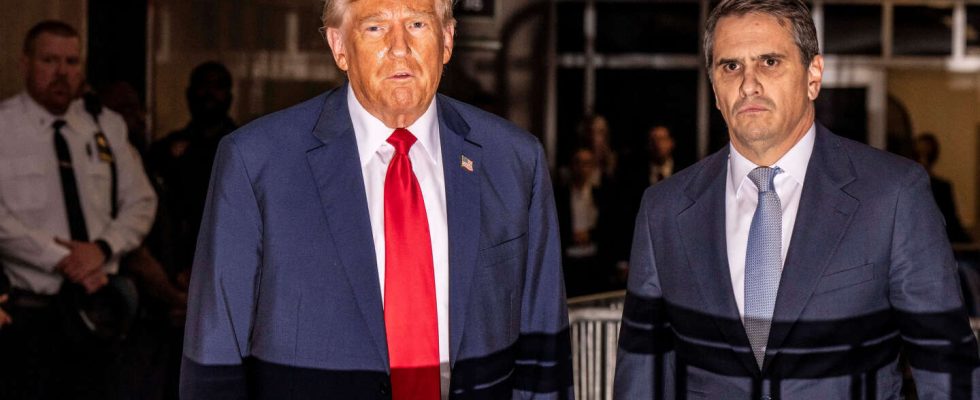The question seems elementary. However, it had never been asked in these terms before the Supreme Court. Should a President of the United States benefit from special protection, protecting him from future criminal prosecution for acts committed during his mandate? The nine magistrates of the highest judicial body in the country examined, Thursday, April 25, Donald Trump’s arguments in favor of total immunity in the exercise of his former functions.
A bold aspiration, which aims to neutralize the charges against him in the federal investigation into the multifaceted coup attempt that occurred between his defeat against Joe Biden, in November 2020, and the assault launched by his supporters against the Capitol, January 6, 2021.
“We are writing a decision for posterity”, warned Judge Neil Gorsuch, emphasizing the unprecedented nature of the debate, the seriousness of which escapes no one, less than seven months before the American presidential election. Two logics emerged in the judges’ remarks and questions. On the one hand, the three so-called liberal magistrates were keen to underline the serious dangers that de facto impunity offered to the president, whoever he may be, would imply. On the other hand, their conservative colleagues wondered about the risk of political exploitation of criminal proceedings against former presidents, deprived of protection.
Skepticism
The expected meeting point between the two sides was shared skepticism about the demand for total immunity. It would mark a rupture, an upheaval in the balance of powers and the exercise of the presidential mandate.
“All the interest [de la Constitution] Wasn’t it that the president is not a monarch, and the president is not supposed to be above the law? » stressed Elena Kagan. She asked Donald Trump’s lawyer if immunity should cover the sale of nuclear secrets to a rival country. “What would happen if a president ordered the military to stage a coup? », she added. His colleague, Sonia Sotomayor, agreed. “If the president decides that his rival is a corrupt person and orders the military or someone to assassinate him, is that his official act for which he may have immunity? ? »she asked herself.
The conservative majority especially seemed keen to specify the scope of partial immunity. This would involve distinguishing more clearly between the official and private acts of a president, one of the essential disputes in this file. Thus, Michael Dreeben, who represented the Ministry of Justice on Thursday, considered that the promotion of fraudulent alternative lists of electors by Donald Trump and his advisers, at the end of 2020, did not fall under a “official conduct”.
You have 58.85% of this article left to read. The rest is reserved for subscribers.

